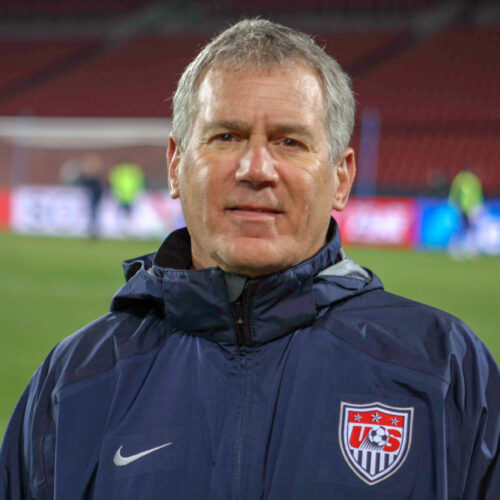By Evan Young | June 12, 2025
Sometime after midnight on the Greek island of Crete, a van heads toward a hotel carrying seven Iraqi soccer players and one American doctor.
It’s August 2004, and the Athens 2004 Summer Olympics are in full swing. So is the Iraq War.
Because of the conflict, Iraq’s national soccer team arrived in Greece late without medical supplies or a doctor. The American, Bert Mandelbaum, MD ’80, stepped in as their physician as part of his role overseeing the soccer tournament for FIFA, the sport’s governing body.
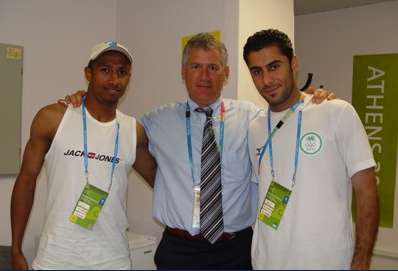
Their interactions up until this point have been cold. But the Iraq soccer team has just beaten Australia in the quarterfinals, and suddenly, some players in the van start singing, joking, and laughing.
“In a few minutes,” Mandelbaum says, “the whole van, including myself, was clapping, singing, and enjoying that Olympic moment despite us being two countries at war.”
Mandelbaum has dozens of stories like this. Throughout his 40-plus years in sports medicine — specifically his involvement in six Olympic Games and nine World Cups — he has witnessed what he explains as “the sport of life and the life of sport intersecting in humanity,” where borders dissolve, and human relations supersede political strife.
Mandelbaum grew up in Long Island, New York, and became interested in sports medicine at an early age. He played and coached lacrosse while completing pre-med studies at Johns Hopkins University.
“My connectivity to sport was all I knew, and all I wanted was to be in sports medicine,” Mandelbaum says.
When the time came to apply to medical school, Mandelbaum brought a list of options to his adviser at Johns Hopkins, Nobel laureate Daniel Nathans, MD ’54.
“He said, ‘I’m not going to write you a letter of recommendation, because you don’t have Washington University in St. Louis on your list,” Mandelbaum says. “At that moment, I was a kid from the Northeast. I didn’t know about WashU. So, I said I would apply. Then I came out and visited campus and immediately fell in love with this school.”
His love affair with the university only grew as he began his studies at WashU Medicine.
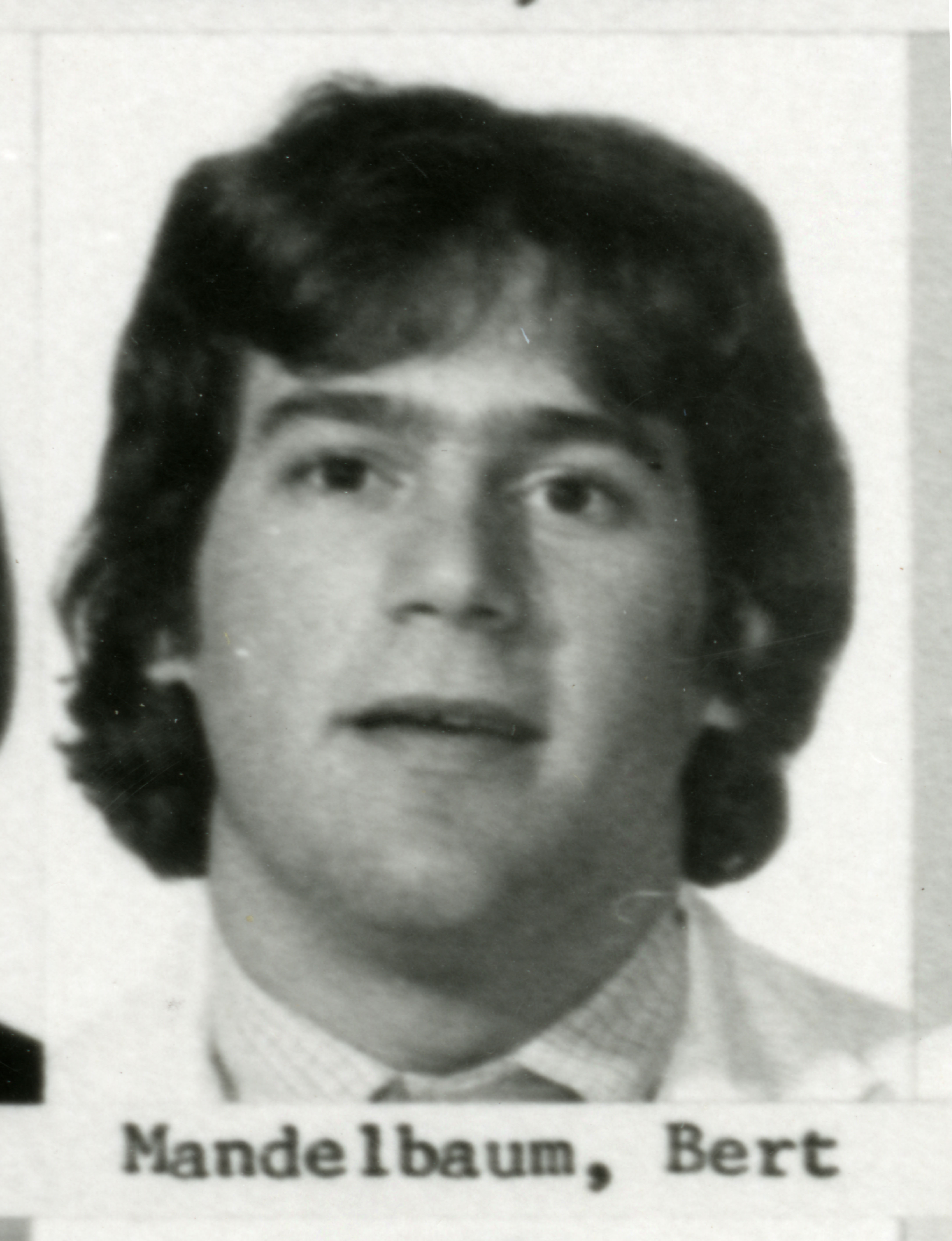
“Education has always been their highest priority,” Mandelbaum says. “The faculty members at WashU were so motivating and inspirational on many levels, teaching us the importance of caring for patients as a foundational value but also how to think about today’s problems with tomorrow’s solutions. I’ve carried those lessons into everything I’ve done.”
His perspective on the university broadened decades later when his daughter, Rachel Mandelbaum, AB ’12, decided to attend WashU.
“I was impressed with how university leadership managed the student and how they managed the parent,” he says. “It’s a cultivating relationship, a fostering relationship that is one of respect and maturity. I think a lot of universities could learn from the WashU culture.”
One faculty member Mandelbaum cited as a mentor was the late Phillip Needleman, who was the head of WashU Medicine’s Department of Pharmacology from 1976–1989.
Needleman and Mandelbaum published research on a blood vessel connecting the aorta and pulmonary artery that closes within a few days after birth. The basic principles of that research, Mandelbaum says, later helped influence Needleman’s development of the arthritis medication Celebrex, which has improved the lives of millions of people worldwide.
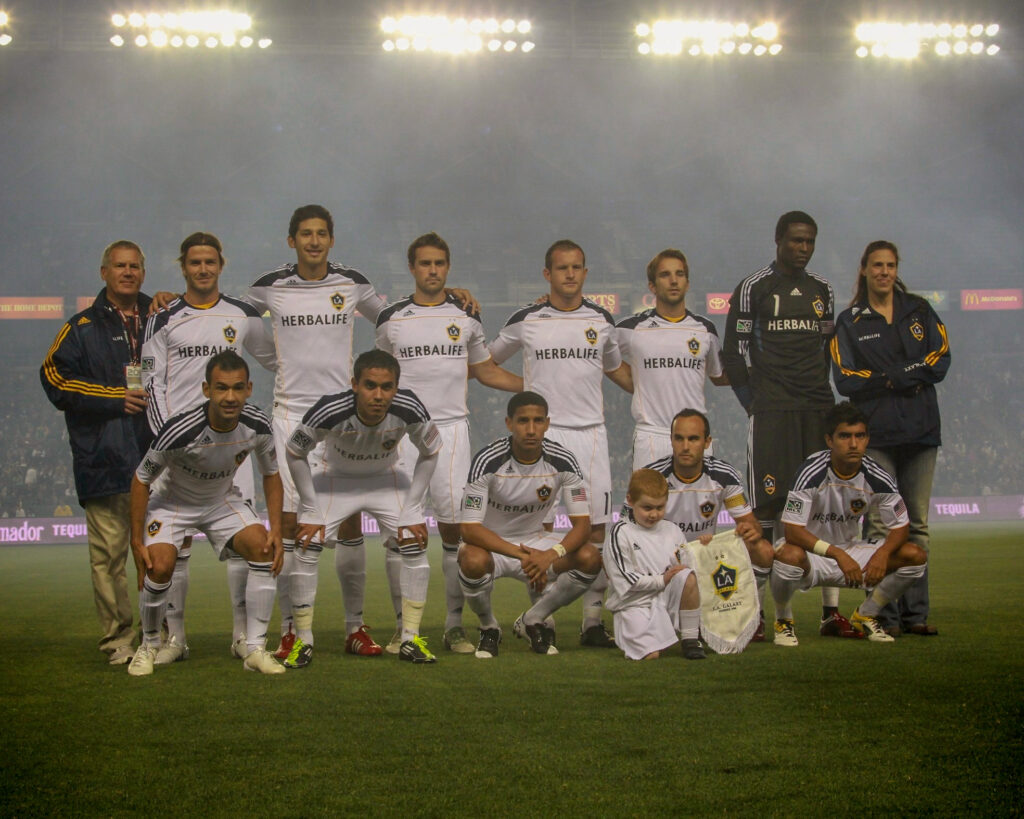
After earning his medical degree in 1980, Mandelbaum completed his residency in orthopedic surgery at The Johns Hopkins Hospital and his fellowship in sports medicine at the University of California, Los Angeles, where he subsequently served on the faculty.
While Mandelbaum wasn’t initially a soccer fan, he grew to love the sport as team physician for UCLA men’s soccer. The Bruins won the NCAA Championship in 1985 during Mandelbaum’s first year, and he quickly became a highly sought-after orthopedic expert.
“Next thing I know, I was associated with the best team in the country, and I was the soccer guy,” he says.
Thus began Mandelbaum’s decades-long relationship with the sport and opportunities to work with numerous major athletic organizations over the years. His extensive resume includes team physician roles with U.S. Soccer, LA Galaxy, and Pepperdine University. He’s also held medical leadership positions with Major League Soccer, FIFA, and the 2015 World Special Olympic Games in Los Angeles.
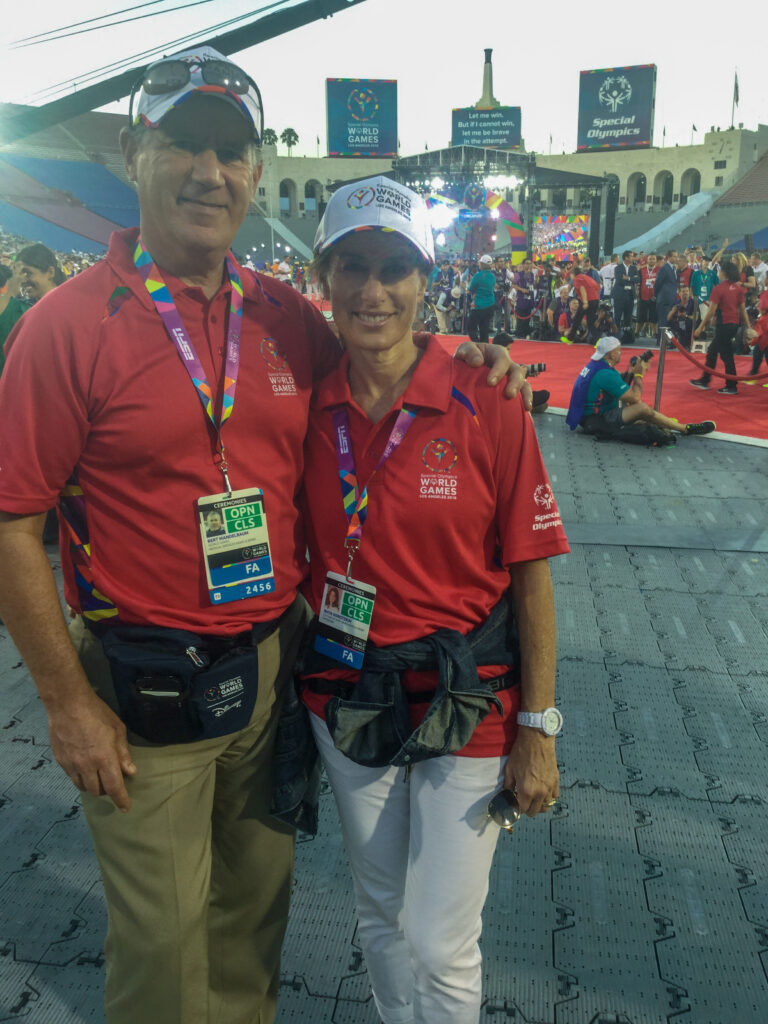
Working with countless elite athletes inspired Mandelbaum to write The Win Within in 2014, which makes the case that anyone, regardless of age or physical condition, can harness the “victorious spirit” of pro athletes in their own life.
In 1989, Mandelbaum began practicing at the Santa Monica Orthopedic and Sports Medicine Group. The practice eventually merged with Cedars-Sinai Medical Center in Los Angeles, where he continues to see patients and serves as professor and vice chair of the Department of Orthopedic Surgery.
Additionally, Cedars-Sinai is the official medical provider for the Los Angeles 2028 Summer Olympics. As part of the executive team, Mandelbaum is helping establish the medical systems and protocols for the Olympic Games — a monumental but rewarding endeavor after a distinguished career in sports medicine.
“I think LA 2028 is a culminating opportunity to put everything I’ve learned in my career together,” he says. “I’m deeply inspired by Olympic sports and the core values that motivate athletes: It’s about the journey and not the destination. It’s about the process and not the win. It’s about taking part and not the outcome. And those three basic principles are the cornerstone of how I care for my patients and the people in my life.”
Related Stories
Alumna Grace Blair: The ‘cowgirl who turned heart surgeon’
Grace Blair, MD ’67, looks back on her journey from a Montana cattle ranch to becoming one of the most successful cardiovascular surgeons in the country.
